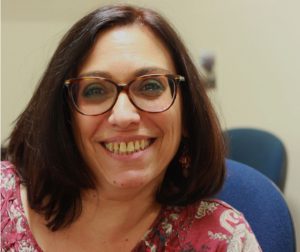Judy Lewis is Assistant Professor of Music Education at the Crane School of Music, SUNY Potsdam. She holds an EdD in Music & Music Education from Teachers College, Columbia University and has been a postdoctoral research affiliate of the Institute for Urban and Minority Education (IUME) at Columbia University. Her research explores the intersection of urban minority music education, popular music, and social justice. She has presented widely at international conferences including giving the Keynote Address at the Music Education and Social Justice conference at Bowling Green State University, Ohio (2019) and the Conference of the National Network for Music in Teacher Education, Bode, Norway (2018). Her scholarly writings have appeared in Music Educators’ Journal, Music Education Research, International Journal of Community Music, Philosophy of Music Education Review, School Music News, Psychomusicology: Music, Mind, and Brain and in the edited volume Narratives and Reflections in Music Education: Listening to Voices Seldom Heard (Springer, 2019). She is editor of the book Music Education on the Verge: Stories of Pandemic Teaching and Transformative Change, which will be published in Fall 2022.

How did you get involved in the FUTURED project?
A number of years prior to the FUTURED project, I was invited by Catharina to join the Community. Criticism, Culture research group at Western Norway University of Applied Sciences. It was there that I first came to know and work with several colleagues in Bergen who also participated in FUTURED. When the FUTURED project was announced, I was invited to come on board as an external researcher. I was delighted.
How would you describe what you are doing in the FUTURED project?
With my colleagues in Work Package 2, we explored the power and the challenges of using participatory action research as a tool for opening inclusive spaces in music teacher education. My role was to help design the protocols of the studies, given my extensive experience with PAR, and to aid in analysis of the data.
What do you find interesting about the work in your study?
While the focus of FUTURED is music teacher-education in Norway, I am continually surprised by the parallels and implications that I can draw to this field in the United States.
What is your favourite aspect of your FUTURED work?
My favorite aspect of FUTURED has been (1) the opportunity to put PAR into action in this setting (a university teacher-education program), and (2) working closely with colleagues from around the world, sharing ideas and perspectives, and learning from each other.
This interview is taking place in the last year of the project. Where are you headed in the future?
I look forward to continuing my collaborations with colleagues in Norway through future projects and joint scholarship. I also hope to make stronger connections between my institution’s department of music education and the music education department at Western Norway University of Applied Sciences. We have much to learn from each other and together!